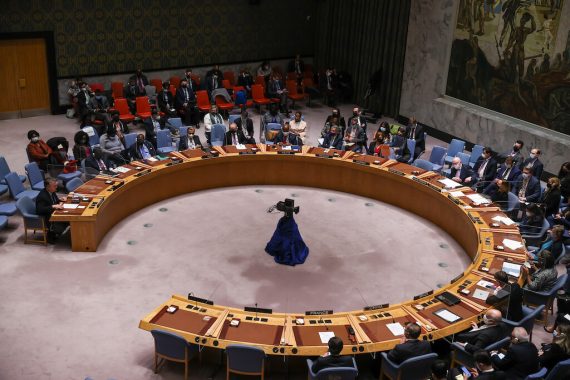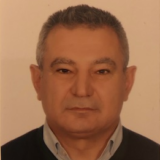International law is the branch of law that regulates how states will act in their bilateral relations, drawing the boundaries of their rights and responsibilities. However, the absence of effective mechanisms to enforce the rules of international law, especially against powerful states, apparently renders them ineffective. The recent Russian invasion of Ukraine is a good example, showing the limits of implementing international law. Tensions between Russia and Ukraine since 2014 did not prevent the occupation of Ukrainian land and eventually an all-out war between the two countries.
With the collapse of the Soviet Union, Ukraine declared its independence in 1991 and was ruled by governments closer to Russia until 2014. However, as a result of popular movements, a pro-Western and pro-European Union government came to power in February 2014. The Russian response to this was critical. The Parliament of Crimea, then an autonomous region of Ukraine, decided to conduct a referendum under the influence of Russia via Crimeans of Russian origin, and events ended up with a Russian invasion and the annexation of the Crimean Peninsula.
In April 2014, in the Donbas region of Ukraine, which is located in the east of Ukraine and densely populated by people of Russian origin, two political entities named “Donetsk People’s Republic” and “Luhansk People’s Republic” proclaimed their breakaway from Ukraine. This step foreshadowed what was to come. Eight years later and in February again, Russia wanted to replicate the annexation of Crimea. Russia launched a large-scale military invasion of Ukraine on the morning of February 24, 2022 – an operation that continues to this moment.
Does Russia’s military invasion of Ukraine have any legal ground?
Russia perceives Ukraine’s getting closer to NATO and the West as a major security threat, and argues that Western European countries and the U.S. intervene in Ukraine’s internal politics in order to bring pro-Western governments to power. According to Russian claims, this is anti-democratic and violates human rights, and therefore Russia voices its motive for the invasion as ending the government of Ukraine’s “anti-democratic” rule.
Going even further, Russia claims that the United States and Western European countries have been trying to create a nuclear Ukraine on its border. Overall, it is well-known that Russia perceives Ukraine as part of “its” territory and believes that it should “return” to Russia.
Russia sent its troops initially to eastern Ukraine under the argument of deploying a “peacekeeping force” upon the invitation of the self-proclaimed republics of Donetsk and Luhansk. This was immediately followed by a large-scale military invasion. Russia’s main argument for sending military troops is the request for “self-defense” by Donetsk and Luhansk.
The Ukrainian government, as a sovereign nation state, opted to cooperate with the European Union and NATO. In fact, they have long been worried about Russia’s possible incursion and, as a result, have set NATO membership as one of their major foreign policy goals. The Ukrainian government expects this preference to be respected in accordance with international law.
Ukraine is a legitimate and sovereign state, and sizeable parts of its territories are subject to Russian intervention and occupation.
Since 2014, Ukraine has been struggling to object to the annexation of Crimea by Russia through political, legal and de facto means. Ukraine is a legitimate and sovereign state, and sizeable parts of its territories, first Crimea and now the Donbas region, which is dominated by separatist movements, are subject to Russian intervention and occupation.
Since the right to self-determination is a right granted by international law only to colonized communities, the self-declarations of independence in Donetsk and Luhansk are not legitimate under Ukrainian national law or international law. This principle manifests explicitly that there is no legitimate state in the eastern Ukraine that Russia or any other state can recognize.
Recommended
Can the UN deter Russia?
In order to justify its recognition of self-proclaimed republics of Donetsk and Luhansk, Russia has asserted that the Ukrainian government has committed “anti-democratic acts and human rights violations.” However, this is not legitimate justification for violating the territorial integrity of a state.
The principle of “respect for the political independence and territorial integrity of states by all other states” is a basic principle of international law articulated in Article 2 of the Charter of the United Nations accepted by all states today. For this reason, all direct or indirect activity by Russia is a clear breach and violation of this basic principle.
It was rather foreseeable that the UN Security Council, in which Russia has a veto power, cannot act against the Russian invasion. In this situation, wherein the Security Council cannot decide to keep the peace, the UN General Assembly can recommend measures against Russia by taking a decision to “unite for peace” as in the case of the Korean War. This could help further strengthen the existing sanctions against Russia.

VIDEO: Russian Expansionism under Vladimir Putin
With or without a UN General Assembly resolution, other states can use armed forces to support the exercise of Ukraine’s right to self-defense under Article 51 of the UN Charter, which regulates the right to self-defense and provides that this right can be exercised by the attacked state alone or with the active assistance of other states. That is to say, with or without a UN resolution, all other countries, including NATO members, can provide assistance, including military, to Ukraine as they see appropriate.
The remaining issue is how to stop the fighting. This war could be stopped either via the options presented by international law to states or via diplomatic channels in the form of negotiations between the relevant sides. The choice between these two is a political matter. In any case, the next step will be determining and prosecuting all those who committed war crimes and crimes against humanity.





